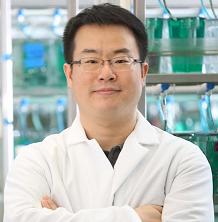Donghun Shin, PhD
Dr. Donghun Shin is an Associate Professor, Department of Developmental Biology, University of Pittsburgh School of Medicine.
Dr. Shin completed his undergraduate/graduate education at Seoul National University, Seoul, Korea. He completed his PhD training at California Institute of Technology, Pasadena, California. For 5 years until 2010, Dr. Shin conducted post-doctoral research at the University of California, San Francisco, California.
In the Department of Development Biology, Dr. Shin and his team’s long-term goal is to contribute to a better treatment of liver failure or liver diseases by understanding the molecular and cellular mechanisms regulating liver development and regeneration using zebrafish as a vertebrate model system.
The liver is the most regenerative organ; however, this regenerative capacity is greatly reduced in the diseased liver, making liver transplantation the only definitive treatment for end-stage chronic liver diseases. The shortage of donor livers however makes this therapy extremely limited. If innate liver regeneration could be augmented in chronic liver patients, it may mitigate the diseases and improve quality of life. Thus, means to augment innate liver regeneration is considered a desirable and necessary alternative therapy. Understanding the mechanisms of liver regeneration is prerequisite for the development of such a therapy. During liver regeneration, hepatocytes can be derived from preexisting hepatocytes or from biliary epithelial cells (BECs). BEC-driven liver regeneration occurs when hepatocyte-driven liver regeneration is compromised, which is the case in chronic liver diseases. A correlation between the number of activated BECs, liver progenitor cells (LPCs), and disease severity in patients with chronic liver diseases suggests that BEC-driven liver regeneration can be initiated, but LPCs fail to differentiate into hepatocytes in the patients. Understanding the entire process of BEC-driven liver regeneration should provide significant insights into augmenting this process in liver patients as therapy.
Dr. Shin and his team have established several zebrafish liver injury models in which BECs extensively give rise to hepatocytes. Using these models, the team has taken several approaches to better understand the mechanisms of LPC-driven liver regeneration: 1) chemical screening, 2) RNAseq analyses, and 3) genes/pathways important for liver development. Currently, they have investigated how 1) epigenetic factors, 2) FGF signaling, and 3) PPAR regulate LPC-driven liver regeneration, particularly the differentiation of LPCs into hepatocytes.
Dr. Shin currently has two NIH R01 funding awards (DK101426, 2014-2024; DK132014, 2022-2026).

Name: Dr. Donghun Shin
Website: https://www.devbio.pitt.edu/people/ant-1
Email Address: donghuns@pitt.edu
Phone Number: (412) 624-2144
